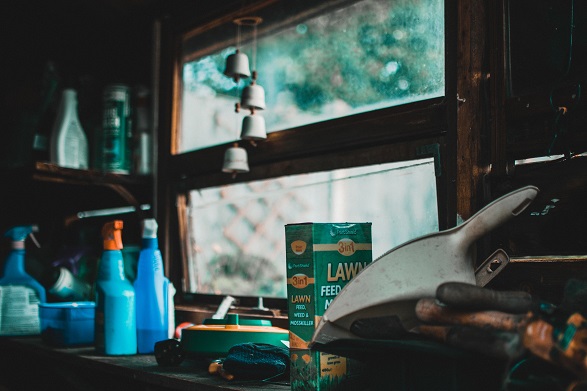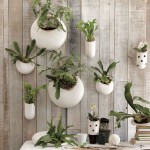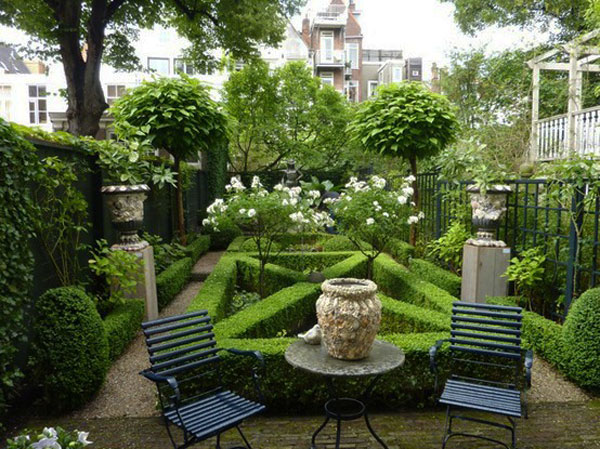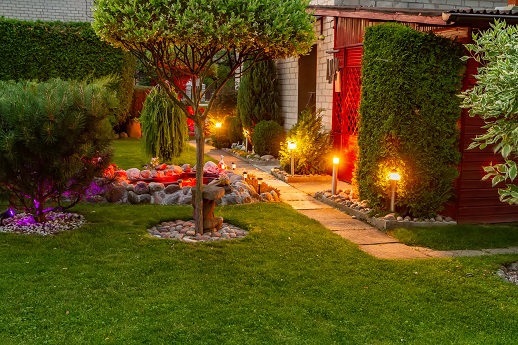Gardening is a rewarding hobby. It allows you to beautify your yard, grow your food, and improve your health.
However, the resources needed can make it an expensive endevor. That is why we have put together this list of items you can use to plant crops, fertilize the soil, and protect your garden in the process.
Read on to discover how you can put many of your household items to good use in and around your garden.
1. Old plastic
You can re-use any old plastic containers you might have lying around, like ice-cream tubs and yogurt pots to start seedlings. They can also serve as tool containers and plant markers.
If you plan to grow food crops in plastic containers, use only food-grade plastic material.
2. Eggshells
Eggshells have a high concentration of calcium. This mineral is an essential building block of all plant cells.
If you can collect a large number of eggshells, you can use them to fertilize your soil. Simply dry out the shells and put them under your mulch.
Alternatively, you can grind up the eggshells in a food processor, and put the resulting powder in a little bit of vinegar for about eight hours to break down the calcium for faster absorption.
Needless to say, eggshells are generally easy to come by, and if you find yourself wanting more, you can always inspect your local restaurants and eateries. Likewise, you can turn to your friends or family members, instructing them to collect their eggshells instead of throwing them away. Clean shells don’t tend to smell, you can collect, wash and store them until they’re ready to be ground.
3. Weeding
Weed growth can become a nagging (and continued) problem if left unattended. You plant your crops, and suddenly your garden bed is filled with these pesky intruders.
Fortunately, weeds don’t have to drive you crazy because you can use the following household items to control weed growth:
* Table salt: Boil salt in water with a ration 1:2 – a cup of salt to two cups of water and pour the hot solution on the weeds.
* Vodka: Mix an ounce of vodka with a teaspoon of dish soap and two cups of water. Spray the solution on the weeds.
* Bleach: Even though we don’t normally recommend the use of such chemicals, you can pour bleach directly on the weeds. However, you should only apply to grass or weeds growing in walkways or footpaths. Be aware that this solution is too harsh for your garden beds and should be avoided there (if not altogether).
4. Epsom salt
Epsom salt contains magnesium sulfate, with magnesium being particularly helpful in strengthening plant cell walls.
As a result, the plants take in more nitrogen and phosphorus. For example, if you happen to have peppers or tomatoes, adding this salt solution to the base will help stimulate the growth and overall happiness of the plant.
You can get a tablespoon of Epsom salt and mix it into one gallon of water, pouring the mixture around the plants. During the growing season, placing a tablespoon of salt at the base of the plant before watering will improve the magnesium intake of the plants.
5. Coffee grounds
If you happen to be a coffee drinker, then you most likely have coffee grounds at hand. Adding coffee grounds to your soil aids in boosting the levels of nitrogen. The good news is, you can add them to the soil without decomposing them.
Apart from the coffee grounds you might have already, you can also inquire about some additional supplies from your favorite local coffee shop. They will most likely be excited to be able to get rid of some of the countless pounds of ground coffee they go through in a day.
You can apply the grounds directly to the soil before watering. On the other hand, you can put a few tablespoons in water and then pour the remaining liquid onto the ground.
6. Baking soda
Baking soda can meet different needs in the garden. First, you can use it as a cleaning agent for your plant’s leaves.
Cleaning your plants with baking soda will remove any dust or grease that can hinder photosynthesis. You can do this by adding a teaspoon of baking soda to one liter of water and using the mix to gently towel town the plants in question.
To remove fungus from your shrubs and flowers, dissolve baking soda in water. Warm a gallon of water and add three or four tablespoons of baking soda. Stir the mixture until the powder dissolves completely.
Spray your plants with this solution once every weekend until the fungus disappears.
7. Milk
If you don’t want to use baking soda to clean your plants, you can use milk. Milk not only serves as a disinfectant, but also fertilizes the soil.
Mix milk and water in an equal proportion. That means one liter of milk to one liter of water.
Apply the diluted solution to the leaves and stems of your plants to prevent diseases. Then pour the rest on the ground around your plants to enrich the soil. You’ll find that the same way milk nourishes infants, it can nourish your peppers, tomatoes, and squashes.
8. Cola
If wasps or hornets have become a nuisance in your garden, get rid of them with the world’s most famous soft drink. Take a bowl with a wide mouth and empty a few bottles of Coca-Cola into it.
The insects will be attracted to the scent and sugar in the drink. Other insects like flies will also gather around the bowl.
If you don’t have coke, you can empty some cans of beer into a bowl to achieve the same effect.
The truth is that you can attract nectar-feeding insects with any concentrated sugar solution. Without using coke or beer, you can make a clean sugar solution. You will trap fruit flies, and reduce the number of insects feasting on the nectar of your garden flowers.
9. Aluminium foil
While aluminum foil is fully recyclable, many recycling companies may not take foil soiled with food waste. There’s nothing to worry about since this foil can be used to deter birds from eating your plants.
Birds love fruit trees and can start eating fruit before they ripen fully. Twist some strips of foil around the branches to protect them.
The foil reflects sunlight. It also makes a rustling noise when the wind blows. These two effects help to scare away birds from your plants.
In the same way, placing tiny pieces of foil into your mulch can prevent light-sensitive pests from the base of your plants.
Take the next step. Look around your home and start gathering some of the items listed above and implement them where they are needed. Use them appropriately to help boost soil nutrients, safeguard your plants, and improve the well-being of your entire garden.










